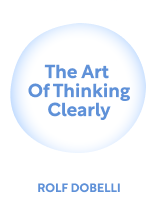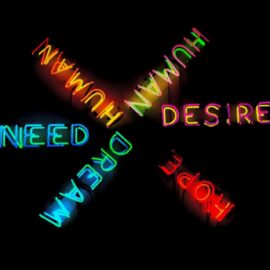

This article is an excerpt from the Shortform book guide to "The Art of Thinking Clearly" by Rolf Dobelli. Shortform has the world's best summaries and analyses of books you should be reading.
Like this article? Sign up for a free trial here .
What exactly is meant by the term “pseudo-profound bullsh*t”? Why do people find it so difficult to admit their ignorance?
Pseudo-profound bullsh*t is a class of long-winded assertions that sound profound yet are meaningless. In his book The Art of Thinking Clearly, Rolf Dobelli calls it the “twaddle tendency” and attributes it to group membership.
Keep reading to learn about the phenomenon of pseudo-profound bullsh*t.
The Twaddle Tendency
People distract from their ignorance, uncertainty, or laziness by speaking long-winded nonsense. This is an attempt to maintain group membership: Part of group membership is bringing some level of knowledge to the group. When people feel their membership is threatened, they pretend to have knowledge to protect their position in the group.
(Shortform note: Another word for nonsense is “pseudo-profound bullsh*t”: saying things that sound profound but are really meaningless. The goal isn’t to educate but to disguise ignorance and to maintain verisimilitude. People do this because of a lack of self-worth: If they were confident in their self-worth, they’d feel secure enough to reveal their ignorance and learn from others.)
Anyone who’s watched a political debate has witnessed the nonsense distraction. A politician gives a rambling answer with lots of patriotic keywords, and you realize they didn’t really answer the question.
Avoid this tendency by testing your ideas for logic and clarity, Dobelli advises. If you don’t know something, it’s better to admit you don’t know than to hide your ignorance.
(Shortform note: It’s not always better to show your ignorance as Dobelli suggests. If you’re in a position of authority, doing so may harm your credibility. Continuing our example, voters are more likely to dismiss a politician who admits ignorance than one who disguises their ignorance. Logically, the voters might know the honest answer is better, but the nonsense distraction makes them prefer a useless answer to none.)
| 24-Hour News and Pseudo-Profound Bullshit One of the most pervasive examples of nonsense distraction is 24-hour news. Back when anchors had to fit a news report into an hour or less, there was only time to present the facts. However, once the news cycle expanded to fill the entire day, news stations had too much time and not enough news. The internet exacerbated the problem, taking news to a minute-by-minute cycle. This need to fill runtime led to sensationalism and opinion pieces. Facts are buried under overdramatized information, and instead of just sharing news, publishers tell you what to think about it. These opinion pieces use authority bias: If the person is trusted to give an interview, you assume they’re qualified, even if they’re not. |

———End of Preview———
Like what you just read? Read the rest of the world's best book summary and analysis of Rolf Dobelli's "The Art of Thinking Clearly" at Shortform .
Here's what you'll find in our full The Art of Thinking Clearly summary :
- A detailed look at the most common logical fallacies that inhibit decision-making
- How to recognize and overcome these fallacies to make better decisions
- Why you value things for arbitrary reasons






